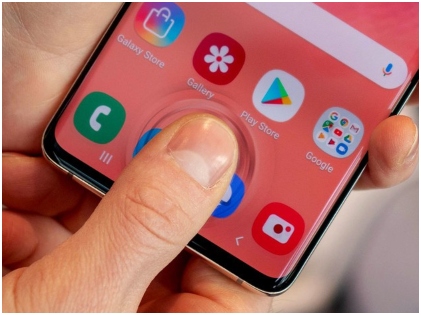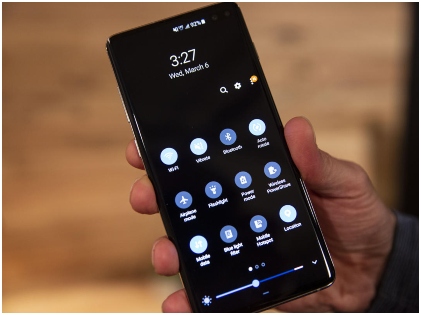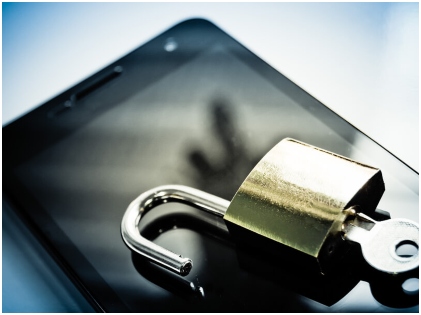Everyone is looking for convenience, especially in today's world. We get elated when we first access e-banking services, retailer websites, and even budgeting tools online. We want all these services on our mobile phones, too. However, there are certain risks are associated when you avail online services from home. Cybercriminals are always trying to rip you off.
With the rise of phishing and spamming, certain smartphone apps have been developed to protect user devices against cybercriminals. Although these apps are known to be effective to some extent, hacking your personal details and financial information isn't really hard for 'savvy' cybercriminals. Can you protect the financial information stored on your phone in this day and age when cyber crimes are rampant? Yes, you can. Here's how to do that.
Use Touch ID
 Have you been hell-bent about not applying a passcode or using a touch ID to secure your smartphone? Okay, it might be less convenient and you don't want to bargain for anything that doesn’t match up to your level of convenience. However, using a touch ID happens to be the first line of defense when it comes to securing your financial information. Of course, professional hackers might have it easy breaking this security wall, but a casual thief is bound to get deterred by the procedure required to breach the security code. Things are going to get harder for criminals if biometrics come into play.
Have you been hell-bent about not applying a passcode or using a touch ID to secure your smartphone? Okay, it might be less convenient and you don't want to bargain for anything that doesn’t match up to your level of convenience. However, using a touch ID happens to be the first line of defense when it comes to securing your financial information. Of course, professional hackers might have it easy breaking this security wall, but a casual thief is bound to get deterred by the procedure required to breach the security code. Things are going to get harder for criminals if biometrics come into play.
Take Additional Security Measures For Your Money Apps
Aside from securing your smartphone, it's mandatory to protect all the financial details that are stored in digital wallets, financial management apps that are linked to your bank account and banking account apps. With the fast-changing cyber threat landscape, the necessity has increased manifold. As per various reports, some banks are trying to introduce cardless ATM withdrawals possibly with the help of mobile apps.
In addition to that, setting up passcodes or using a touch ID for each and every financial app that you use can be highly effective in case your phone gets hacked or misplaced. As far as your personal accounts are concerned, choose passwords that are unique in nature, make a point to update them from time to time, and keep them aside in a safe place. Don't store them in your phone. There are smartphones that enable you to block ad tracking methods as well as Internet access to shield any kind of financial information from outside access.
You Should Be Aware of Your Smartphone's Vulnerabilities
 In case of a major data breach, the tech companies shoulder the responsibility of intimating the general public about the steps to be taken. Identical information is available which tells you how the operating system, the browser, as well as other tools in your phone could be vulnerable to various types of cyber threats. Remember, you don't need to have deep knowledge about modern technologies in order to check out your smartphone’s systems and have an idea of the looming threats. If you feel you cannot do this on your own, you can definitely check out the news sites and technology blogs. Alternatively, you can check your phone's manual or directly talk to a customer care rep to know more about how to view your phone system specifications. Keep in mind that if you fall prey to cybercrime and you need to report the whole incident to your bank, your bank will ask for your phone system specification basics. Therefore, you need to keep this information handy.
In case of a major data breach, the tech companies shoulder the responsibility of intimating the general public about the steps to be taken. Identical information is available which tells you how the operating system, the browser, as well as other tools in your phone could be vulnerable to various types of cyber threats. Remember, you don't need to have deep knowledge about modern technologies in order to check out your smartphone’s systems and have an idea of the looming threats. If you feel you cannot do this on your own, you can definitely check out the news sites and technology blogs. Alternatively, you can check your phone's manual or directly talk to a customer care rep to know more about how to view your phone system specifications. Keep in mind that if you fall prey to cybercrime and you need to report the whole incident to your bank, your bank will ask for your phone system specification basics. Therefore, you need to keep this information handy.
Consider the Security Features While Shopping
 If your smartphone is outdated, it is more likely to lack the essential security features required to protect it from any kind of vulnerability. Hackers would have it all easy while breaching your security wall. Prioritize your phone's security when you are out to buy one. Aside from the features that are common to all phones, the security features differ from one phone to another and are based on the operating system. Check out what the experts have to say. Don’t forget to understand the nuances of security offered by your phone. Make sure that you select a product with sophisticated security features. In between the system upgrades, install the updates as soon as you get them.
If your smartphone is outdated, it is more likely to lack the essential security features required to protect it from any kind of vulnerability. Hackers would have it all easy while breaching your security wall. Prioritize your phone's security when you are out to buy one. Aside from the features that are common to all phones, the security features differ from one phone to another and are based on the operating system. Check out what the experts have to say. Don’t forget to understand the nuances of security offered by your phone. Make sure that you select a product with sophisticated security features. In between the system upgrades, install the updates as soon as you get them.
If you are using your smartphone for financial management, you must ensure that every bit of your private information is safe and secure from cyber threats and illegal access. Advancements in technology have brought along a lot of positives as well as negatives. Keeping your hard-earned money safe should be of utmost priority and you should treat your phone as your digital financial portfolio holder.

